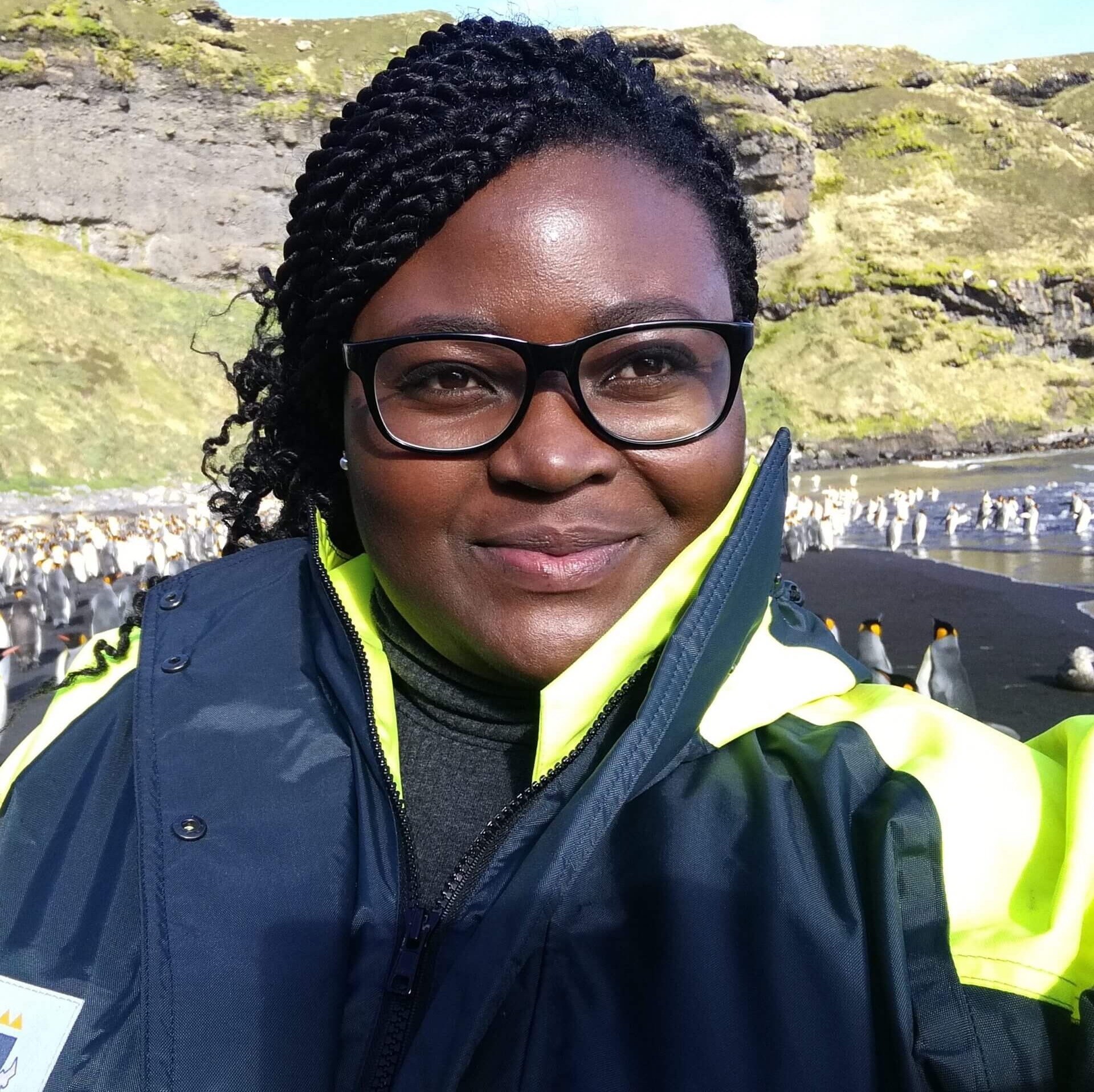What is your educational background?
North-West University (South Africa): BSc (Biology and Chemistry) (2009-2011)
North-West University (South Africa): BSc Hons (Microbiology) Cum laude (2012)
University of Pretoria (South Africa): MSc (Microbiology) (2013 – 2015)
University of Pretoria (South Africa): PhD (Biotechnology) (2016 – ongoing)
Public Sector Marketing Institute (Ireland) – Professional Diploma in Social Media (2021 – ongoing)
What is your current occupation?
I am a South African first-generation graduate, completing a PhD in Ocean Microbial Ecology at the University of Pretoria. The multidisciplinary (Microbiology, Ecology and Oceanography) project aims to unveil the drivers of Southern Ocean bacterial, archaeal, fungal and viral community composition, diversity and functionality using omics approaches. This research has allowed me to lead sampling efforts for the lab, during the South Indian Ocean and Southern Ocean expeditions onboard the S.A. Agulhas II research and logistics vessel. The project resulted in two first-author publications. I’m also a youth Activist, focused on Ocean advocacy and science diplomacy. I was head-hunted to be a Youth ambassador for South Africa in the European-Union (EU) supported 2019/2020 All-Atlantic Ocean Youth Ambassador programme. I am a mentor to the 2021/2022 cohort and a youth lead for the Marine Microbiome Working Group by the Atlantic Ocean Research Alliance (AORA). I have recently transitioned to industry at Thermo Fisher Scientific (South Africa; February 2021).
What or who got you into STEM?
I grew up with different passions. At one time I wanted to be a playwright or concert cellist. After completing high school, I couldn’t pursue those dreams due to financial constraints. I took a year-long unintentional gap year, which allowed me to do some introspective work. I received career counseling and true to form, it was a tie between the sciences and art. Once my parents secured an educational loan for me, we subsequently rushed to the North-West University during registration week. I was accepted for an undergraduate degree as a walk-in applicant. I had to choose between a BSc. in Biology and Chemistry or BSc. in Physics and Computer science. I chose the former and fell in love with STEM at first Chemistry titration experiment. I believe curiosity got me into STEM – at the time, I didn’t have any reference to what a scientist looked like or does for a living.
What is the biggest challenge/barrier you have faced as an African in STEM?
Racism, financial exclusions due to being part of the “missing middle class” and discrimination as a womxn in STEM. I am currently surviving from depression and anxiety linked to my experience in academia.
How do you think your background/upbringing has been beneficial in your journey/career?
My parents fostered qualities such as: possession of a curious mind, self-education by reading (a lot), expression of accountable leadership, doing what I love and effective communication. They also allowed my siblings and I to quit activities that we did not enjoy; this alone has given me permission not to stay in unhealthy working environments and relationships out of loyalty or false sense of commitment.
How do you think we can start to change the narrative surrounding African contributions
to global STEM research & careers?
The narrative can only change by elevating and celebrating the contributions of Africans in STEM at all levels of their journey (undergrad to professor level). Science has been happening in Africa for thousands of years. Africans are not invisible, hence we should know their names, follow their scientific contribution and have a way to access that information. Representation is so important: we can only be what we’re exposed to.
What advice would you like to give to young, aspiring Africans in STEM?
Do what you love and follow your passion. It won’t be easy, however know that you are capable and valuable. Your contribution matters! Use your voice to advance access to STEM and lend your knowledge during social justice movements. STEM doesn’t exist in a vacuum, your voice is needed!
Do you have any projects you’re working on that you would like us to highlight?
I was part of the inaugural organizing committee for #BlackinMicro week (@BlackinMicro on twitter and Instagram; https://blackinmicrobiology.org/), representing Africa. The event was a huge success in creating a community where Black microbiologists can network across career stages and sectors, while also supporting the collective work of pursuing equity in academia, industry, government, and beyond. I am currently one of the 50 Womxn in STEM recipients of the 2020 Inspiring Fifty South Africa award. Our mission is to inspire girls and women to choose a career in STEM through outreach and providing a positive representation – “if she can see it, she can be it”.






